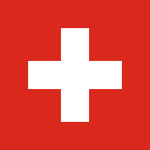Corruption in Switzerland
| Political corruption | ||||||||||||
|---|---|---|---|---|---|---|---|---|---|---|---|---|
 | ||||||||||||
| Concepts | ||||||||||||
| Corruption by country | ||||||||||||
|
||||||||||||
Corruption in Switzerland describes the prevention and occurrence of corruption in Switzerland.
Petty corruption and low level bribes are uncommon and the courts are generally seen as fair and impartial. Very few Swiss citizens consider police or judicial corruption to be widespread. Switzerland is a signatory to the OECD Anti-Bribery Convention and other international anti-corruption laws. Companies generally do not consider corruption a problem for doing business in Switzerland. However, the Swiss banking industry is seen as extremely non-transparent with secrecy laws that can allow tax evasion, money laundering and hiding illegally obtained money. Additionally, political party financing is poorly regulated and open to abuse.
Extent[]
Government[]
Switzerland has a legal framework to combat corruption and several authorities are in charge of curbing the levels of it, particularly when it comes to corruption within Swiss financial institutions.[1] Several sources suggest that the country's fight against corruption has been effective.[2] However, efforts to combat corruption, especially with respect to political party financing have been described as unsatisfactory.[3]
Council of Europe's Group of State Against Corruption (GRECO) in its evaluation report noted that specificities of Switzerland's institutions which enjoy considerable public confidence. It underlines, however, that the very organisation of the system allows subtle pressure to be exerted on politicians and the judiciary.[4]
Transparency International's 2018 Corruption Perception Index ranks the Switzerland as the 3rd least corrupt state out of 180 countries.[5] In a 2020 report Transparency International noted that political funding, whistleblower protections and combating money laundering were all issues in Switzerland.[6]
The Transparency International Global Barometer 2013 shows that 58% of the surveyed households believe that corruption has not changed over the past two years, and 28% believe that it has actually increased. The same survey also shows that political parties are considered the most corrupt institution in Switzerland.[7]
The police and courts are generally open and fair with little bribery or corruption. Cases of excessive force, lengthy detention and abuse against migrants or asylum seekers have been reported. In some cases police officers have been given suspended sentences or suspended fines for using excessive force while arresting individuals.[3]
Business[]
Regarding business and corruption, companies do not consider corruption a problem for doing business in Switzerland, and Swiss companies are active in Corporate Social Responsibility that are generally in line with OECD Guidelines for multinational enterprises.[8]
But the Swiss system has also enabled some types of organisation to operate with little or no transparency or oversight such as those linked to commodities trade.[9][10][11] [12] For example, International sporting organisations (ISO's) can have the legal status of an international Non Governmental Organisation. Encouraged by the resulting range of legal and fiscal privileges, something like 50 such ISO's are based in the Canton of Vaud alone.
According to the OECD:[13]
Switzerland has a leading, and sometimes dominant, position in a number of the economic sectors that not only play a key role in its economy but also expose it to relatively acute risks of foreign bribery
Banking[]
In 2018 the Tax Justice Network ranked Switzerland's banking sector as the "most corrupt" in the world due to a large offshore banking industry and very strict secrecy laws. These laws allow money laundering and hiding illegally obtained money.[14][15] The Tax Justice Network's ranking attempts to measure how much assistance the country's legal systems provide to money laundering, and to protecting corruptly obtained wealth.[16] However, Berlin-based Transparency International ranked Switzerland as the world's 3rd least corrupt country. Also, Transparency International is a German voluntary association with its founders themselves having strong ties to the banking sector of Switzerland.[17]
See also[]
- Crime in Switzerland
- 2015 FIFA corruption case
- International Anti-Corruption Academy
- Group of States Against Corruption
- International Anti-Corruption Day
- ISO 37001 Anti-bribery management systems
- United Nations Convention against Corruption
- OECD Anti-Bribery Convention
- Transparency International
References[]
- ^ "Snapshot of the Switzerland Country Profile". Business Anti-Corruption Portal. Archived from the original on 8 December 2013. Retrieved 4 December 2013.
- ^ "2013 Investment Climate Statement - Switzerland (Including Lichtenstein)". US Department of State. Retrieved 4 December 2013.
- ^ a b "Human Rights Report 2015- Switzerland". US Department of State. Retrieved 26 November 2019.
- ^ "Council of Europe's Anti-Corruption body calls on Switzerland to develop ethical rules applicable to federal members of parliament, judges and prosecutors". Group of States against Corruption. Council of Europe. Retrieved 2017-03-23.
- ^ "Switzerland". Berlin, Germany: Transparency International. 2018. Retrieved 26 November 2019.
- ^ "2020 Country Reports on Human Rights Practices: Switzerland". US Department of State. Retrieved 25 May 2021.
- ^ "Global Corruption Barometer 2013". Transparency International. Retrieved 4 December 2013.
- ^ "Snapshot of the Switzerland Country Profile". Business Anti-Corruption Portal. Archived from the original on 8 December 2013. Retrieved 4 December 2013.
- ^ "Glencore probed by U.S. CFTC for 'corrupt practices'". Reuters. 25 April 2019.
- ^ "Trafigura ends use of middlemen after corruption probes".
- ^ "Trafigura paid $390m in share deal with Angola's 'General Dino'".
- ^ "Un sulfureux pétrolier vend sa villa pour 60 millions". Le Temps. 10 October 2021.
- ^ "Switzerland tackles more international bribery cases but gaps remain".
- ^ "Switzerland, US 'The Most Corrupt'". 9 February 2018.
- ^ "Credit Suisse told to tighten money-laundering compliance by US".
- ^ "Switzerland remains top of 'financial secrecy' ranking as US rises to second". 31 January 2018. Retrieved 18 July 2019.
- ^ Budras, Corinna. "Transparency International: Die dunklen Seiten der Korruptionsjagd". FAZ.NET (in German). ISSN 0174-4909. Retrieved 2021-04-08.
External links[]
- Switzerland Corruption Profile from the Business Anti-Corruption Portal
- Corruption in Switzerland
- Corruption in Europe
- Crime in Switzerland by type
- Politics of Switzerland
- Corruption by country
